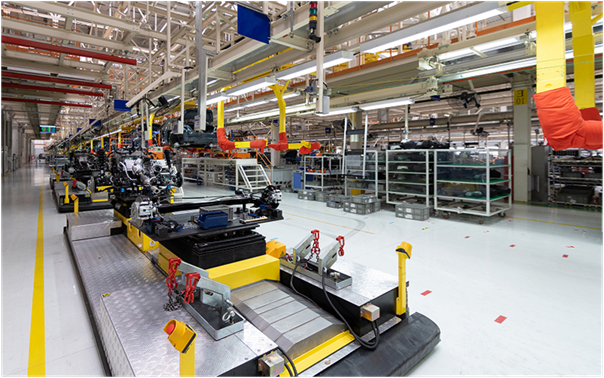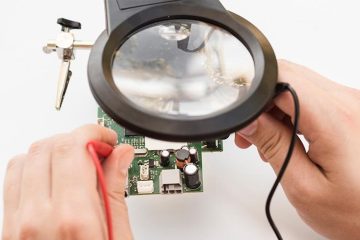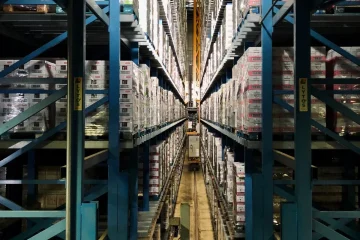Automation Company in Singapore: 10 Things You Should Know First

The way factories, warehouses, and even smaller workshops run is being subtly changed by technology. In an effort to increase efficiency and consistency, many businesses are now investigating automation. Before beginning the process, there are essential things to know if you are considering working with an automation company in Singapore. Let’s examine what makes automation projects successful.
1. Understand the Scope of Automation
Automation can range from simple repetitive tasks to complex system-wide solutions. Before you begin, clarify whether your goal is to handle basic mechanical processes or to implement fully integrated systems. Without a clear scope, costs can spiral and expectations may not be met. A structured discussion with the provider ensures you choose realistic goals aligned with your operations.
2. The Role of PLC in Automation
A PLC (Programmable Logic Controller) is the heart of many automation systems. It acts as the decision-maker, receiving signals from sensors and triggering appropriate responses. Think of it as the orchestra conductor ensuring every machine plays its part on time. Before committing, make sure you understand how PLCs can be scaled and tailored to your business needs, since not every model will fit your workflow.
3. Why PLC Controllers Are Critical
The PLC controller is more than just a box with circuits. It is responsible for translating instructions into actions on the shop floor. From regulating conveyor belts to monitoring safety features, its role is fundamental. Knowing how these controllers interact with your existing machinery is important, especially if your systems are older. Compatibility checks can save you from expensive delays later.
4. Safety and Compliance Should Come First
Automated machinery may speed up production, but it also comes with safety responsibilities. Local regulations in Singapore require compliance with workplace safety standards. This includes safeguarding workers from moving equipment and ensuring machines can be shut down quickly in emergencies. Any automation company in Singapore should provide proper safety integration and documentation before rollout.
5. Think About Scalability Early On
Automation is not a one-time event. Your business may grow, and so will the demands placed on your systems. This is where PLC programming and controller flexibility become vital. A scalable setup allows you to add new machines or expand functions without rebuilding the entire framework. Choosing scalable options upfront can protect your investment.
6. The Human Element Still Matters
Automation doesn’t eliminate the need for people. Skilled technicians are essential for setting up, monitoring, and maintaining systems. Training staff on how to work alongside automated equipment reduces errors and increases confidence. Without adequate human support, even the most advanced PLC controller may end up idle.
7. Plan for Maintenance and Support
Machines, like people, require upkeep. Even the most reliable PLC will face issues eventually. Regular maintenance schedules, software updates, and quick response times from the provider are key to smooth operations. Before signing any contract, ask about after-sales support, warranties, and the expected lifespan of installed systems.
8. Budgeting Beyond the Equipment
Many assume automation is just about buying machines. In reality, costs stretch beyond hardware. Installation, training, compliance checks, and software licensing all add up. When evaluating proposals from an automation company in Singapore, ensure the pricing covers the full picture, not just the equipment itself. Hidden costs can be a rude surprise later.
9. Integration With Existing Systems
Your factory or office might already have software managing inventory, energy use, or production schedules. The new automation system must work smoothly alongside these. Proper integration avoids double entry, delays, and confusion between systems. Always discuss compatibility upfront to avoid messy retrofits.
10. The Importance of Choosing the Right Partner
Not every automation provider will be suited for your project. The right partner will ask detailed questions about your processes, explain technical choices clearly, and provide a roadmap for implementation. A reliable partner should also walk you through how PLC and PLC controller solutions can evolve with your operations.
Starting an automation journey requires more than enthusiasm for new technology. It involves understanding PLC systems, considering scalability, planning for safety, and ensuring ongoing support. By keeping these essentials in mind, you reduce the risk of overspending and increase the likelihood of smooth operations. Whether it’s a small upgrade or a larger transformation, the foundation you set at the start makes all the difference.
Contact YT Automation to explore tailored solutions that align with your business goals.













